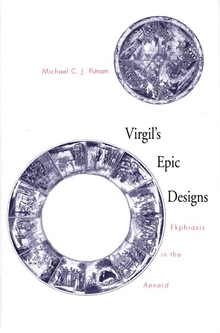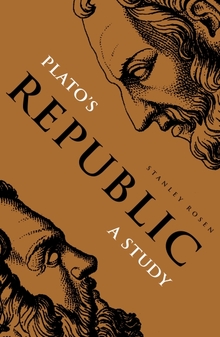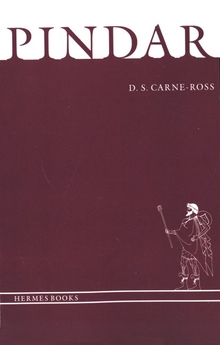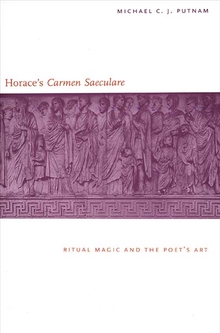Virgil's Epic Designs
WARNING
You are viewing an older version of the Yalebooks website. Please visit out new website with more updated information and a better user experience: https://www.yalebooks.com
Ekphrasis in the Aeneid
Michael Putnam
Putnam offers insightful analyses of the most extensive and famous ekphrases in the Aeneid—the paintings in Juno’s temples in Carthage, the Daedalus frieze, and the shield of Aeneas. He also considers shorter and less well known examples—the stories of Ganymede, the Trojan shepherd swept into the sky by an amorous Jupiter; the fifty daughters of Danaus, ordered by their father to kill their husbands on their wedding night; and Virgil’s original tale of a domesticated wild stag whose killing sparks a war between Trojans and Italians. These ekphrases incorporate major themes of the Aeneid, an enduring formative text of the Western tradition, and provide a rich variety of interpretive perspectives on the poem.
"This important book by the most distinguished American scholar of Virgil offers original and compelling readings of the Aeneid’s ekphrases, both those that have been much studied as well as the less familiar. While many recent scholars of ekphrasis have reflected on how it functions variously to fragment the narrative, Putnam shows that the Aeneid’s ekphrases, in their form and in their matter, can be read as illuminating metaphors of the poem as a whole, thus, in fact, functioning to deepen the reader’s sense of the Aeneid as an aesthetic and ethical unity.”—Christine Perkell, Emory University
“This book by the most distinguished American scholar of Virgil proposes original and compelling readings of the ekphrases of the Aeneid, which deepen one’s sense of the poem’s unity and meaning.”—Christine Perkell Zarbin, Emory University
"This collection offers the best description we have of Virgil’s visual artistry. Putnam has been able to observe and explain how this most subtle of image-makers turns his intricate, haunting pictures into a unique narrative strategy."—WR Johnson, University of Chicago
"Perceptive and erudite, Putnam makes one aware of numerous subtle touches in the text; the reader learns much."—Choice
“I hope to have given the reader some feel for the texture of this eloquent book, which provides us with the strongest possible argument for its author’s view that ‘Ekphrasis breaks the forward thrust of epic and reminds us that, in Virgil’s brilliant hands, the plot of Rome has a repetitively tragic dimension.’ Putnam’s hands, too, after all, are those of a master artisan.”—Shadi Bartsch, Classical Review
“Virgil’s Epic Designs is quintessential Putnam. It is a study that brings together close readings of six Virgilian Ekphrases—Dido’s murals, the cloak of Cloanthus, Daedalus’ frieze, Silvia’s stag, the shield of Aeneas, and Pallas’ baldrie—with their Virgilian intertext and with other works, both poetic and monumental. . . . An eloquent book.”—Shadi Bartschi, Classical Review
"Putnam is the leading critic in North America of Virgil’s poetry. His latest book, lucidly written and elegantly argued, on the design and function of the ekphrases in the Aeneid should not be missed by any student of Latin literature."—R. J. Schork, New England Classical Newsletter
“Michael Putnam . . . who has been hailed as ’the most distinguished American scholar of Virgil’ has just added to three previous volumes, one on each of Virgil’s three poems. . . . In the new volume he tackles another subject that turns on the question of unity, the prevalence in the poem of what ancient critics called ekphrasis, a late Greek critical term denoting a set-piece description, usually of a work of art, embedded in a narrative. . . . No one can read this book without learning a great deal and seeing deeper into the complexities of Virgil’s poetic mind at work.”—Bernard Knox, New York Review of Books
“Putnam’s argument is sure-footed, drawing on a full knowledge of the ancient texts and modern secondary literature. . . . Of interest to advanced students of Virgil, it would be a fine addition to any academic library.”—Eric Kyllo, Religious Studies Review
Publication Date: August 11, 1998







